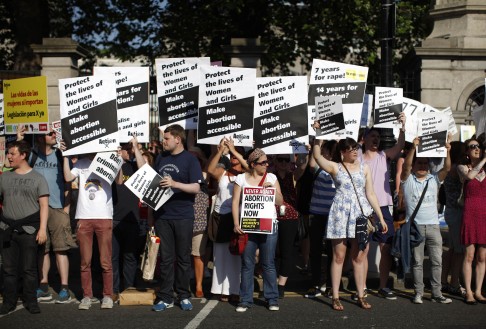
Brain-dead pregnant woman 'can die' after Irish court ruling

A brain-dead pregnant woman was taken off life support after a court ruled that her 18-week-old fetus was doomed to die - a case that exposed fear and confusion among doctors over how to apply Ireland's strict ban on abortion in an age of medical innovation.
The three-judge Dublin High Court said that all artificial support for the woman should end more than three weeks after she was declared clinically dead.
Her relatives gathered at a hospital in the Irish Midlands to bid farewell to the unidentified woman, who was in her late 20s and had two young children.

In their 29-page ruling, the judges accepted testimony from seven doctors who said the fetus could not survive for the extra two months of development needed to be delivered safely.
The doctors detailed how the woman's body was becoming a lethal environment rife with infections, fungal growths, fever and high blood pressure.
The nation's Supreme Court was put on standby for an appeal, given the constitutional questions at stake. But lawyers representing the rights of the woman and of the fetus said they accepted the ruling from the country's second-highest court.
Ireland has the strictest abortion ban in Europe, a reflection of the country's heavily Catholic population. But Dublin's archbishop had suggested before the decision came down that he would have no objection to removing life support.
The woman suffered irreversible brain death on December 3, four days after sustaining a severe head injury in a fall. Doctors refused family pleas to turn off the machines, citing fears they could be sued for negligence or face murder charges if they cut life-sustaining support for the fetus.